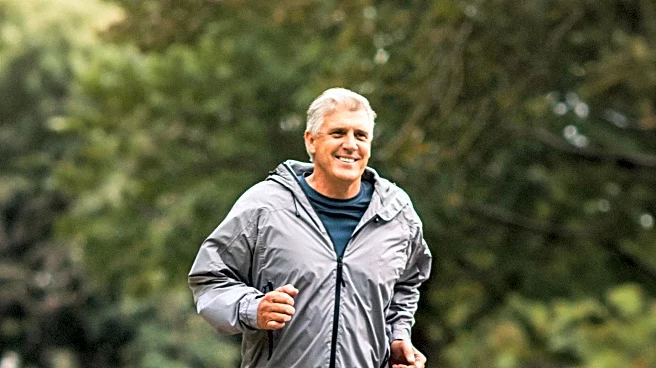What's Happening?
A comprehensive study has identified 12 biological hallmarks of aging and highlighted exercise as a powerful countermeasure. Originally published in 2013 and updated in 2023, the research outlines processes
such as genomic instability, telomere attrition, and mitochondrial dysfunction that contribute to aging. Exercise is shown to combat these processes by enhancing DNA repair, maintaining telomere length, and improving mitochondrial efficiency. The study emphasizes that regular physical activity can significantly slow down the aging process by improving cellular health and reducing inflammation.
Why It's Important?
The study's findings have profound implications for public health, suggesting that exercise can serve as a universal prescription for aging-related issues. By addressing the root causes of aging at the cellular level, exercise not only improves physical health but also enhances longevity and quality of life. This research supports the growing body of evidence that regular physical activity is essential for preventing chronic diseases and maintaining overall health as people age.
Beyond the Headlines
The study also highlights the potential for exercise to improve mental health and cognitive function, suggesting that physical activity can enhance brain health and reduce the risk of neurodegenerative diseases. This underscores the holistic benefits of exercise, which extend beyond physical health to include mental and emotional well-being.











